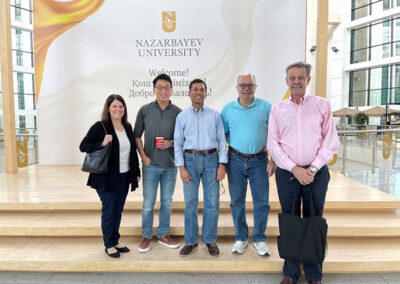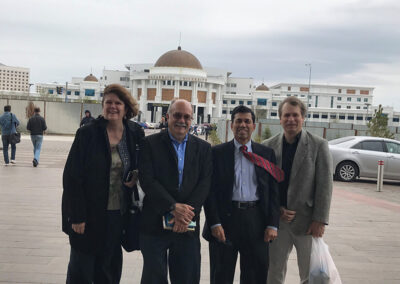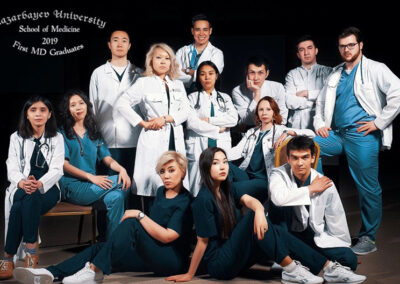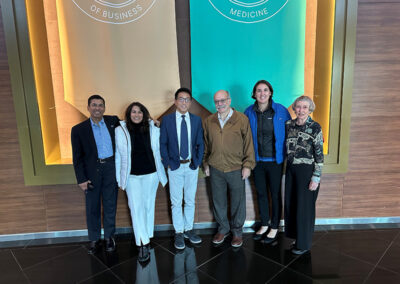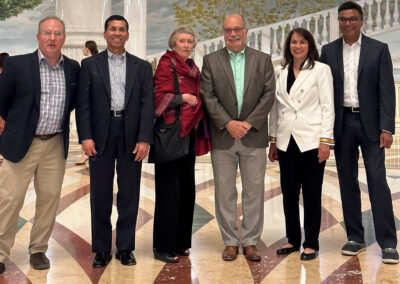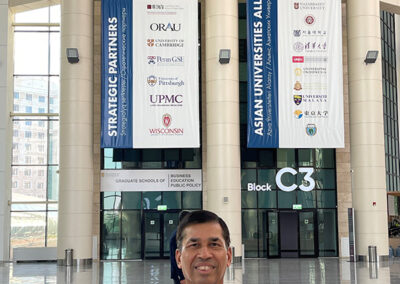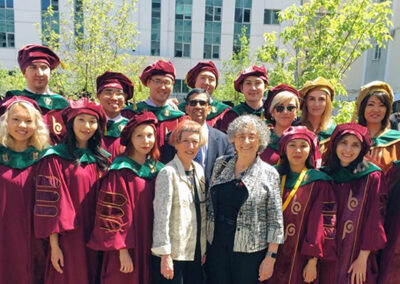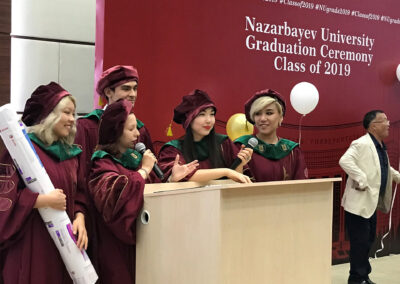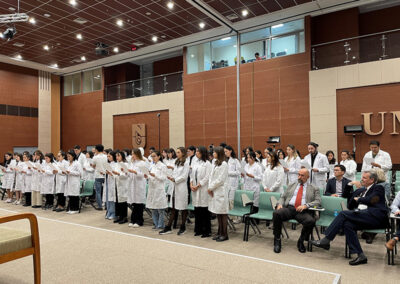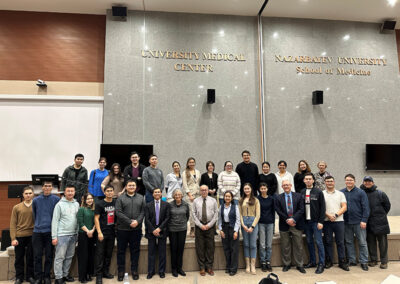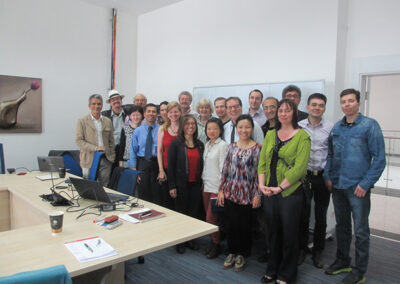Faculty Spotlights >> Saleem Khan: Educator, Researcher and Capacity Builder
Contributing Our Expertise in Every Way Possible
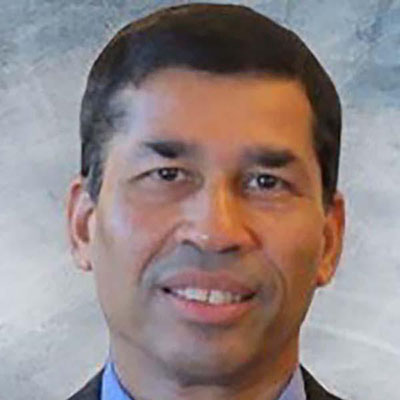
Medicine
In 2012, the idea of creating a new medical school in Kazakhstan was just that—an idea. There was no building, no curriculum, no faculty and, naturally, no students.
But today, thanks to a strategic partnership between the University of Pittsburgh School of Medicine (SOM) and Nazarbayev University, there is a fully accredited academic medical center in the capital city of Astana. It is the only graduate-level MD program in Central Asia, and it is modeled after Pitt’s highly ranked medical school.
Pitt’s Saleem Khan, associate dean for graduate studies and academic affairs, has been involved in this partnership since 2013. One of his first tasks was to help recruit faculty from around the world to teach basic science courses. His next charge was to develop a strong curriculum.
An American Model in Central Asia
Over the past 13 years, Pitt has assisted with the development of a nursing program at NUSOM, two doctoral programs in global health and biomedical sciences, as well as four master’s in molecular medicine, public health, pharmacology and toxicology, and sports medicine and rehabilitation.
In three short years, the Nazarbayev University School of Medicine (NUSOM) welcomed its first class. Instead of students coming directly out of high school like most medical programs in Central Asia, the NUSOM medical students were recruited from Nazarbayev University itself. And because the school was based on an American model, courses were not taught in the native languages of Kazakh or Russian, but in English, a more universal language in the health care professions.
“It was challenging for both students and faculty,” notes Khan. “But they all took a course in translating medical technology, which was very practical and helpful for them moving forward.”
Part of Khan’s responsibility was to train faculty in different basic science topics and teaching modalities. “Since the American school of medicine model uses problem-based learning, we brought the faculty into small group settings and taught them how to engage with students,” Khan continues. “They learned how to encourage teamwork and communication among students, and how to help them solve open-ended questions.”
Ongoing Involvement from Pitt SOM
Khan worked with a core Pitt Med team that included Maggie McDonald, Michael Elnicki and Ann Thompson, which continued to recruit clinical faculty and specialists in areas such as medicine, pediatrics, surgery, and obstetrics and gynecology. The Pitt team brought more than 50 Pitt SOM faculty members to NUSOM to share their expertise.
Upon completion of the program, approximately half of the med school graduates stay in Kazakhstan to complete their residency requirements, while one-quarter come to the U.S. or another Western country and the final quarter enroll in a PhD program.
Following the American model of medical education, Khan and the Pitt leadership team also helped to establish a research program at the new school.
“It has been exciting to see the growth and success of the medical school in Kazakhstan,” reflects Khan. “Now that we have this experience, we believe that we can replicate the process in other parts of the world. In fact, it would be a shame not to bring the Pitt expertise to other partners who wish to educate their nation’s next generation of health care leaders.”

